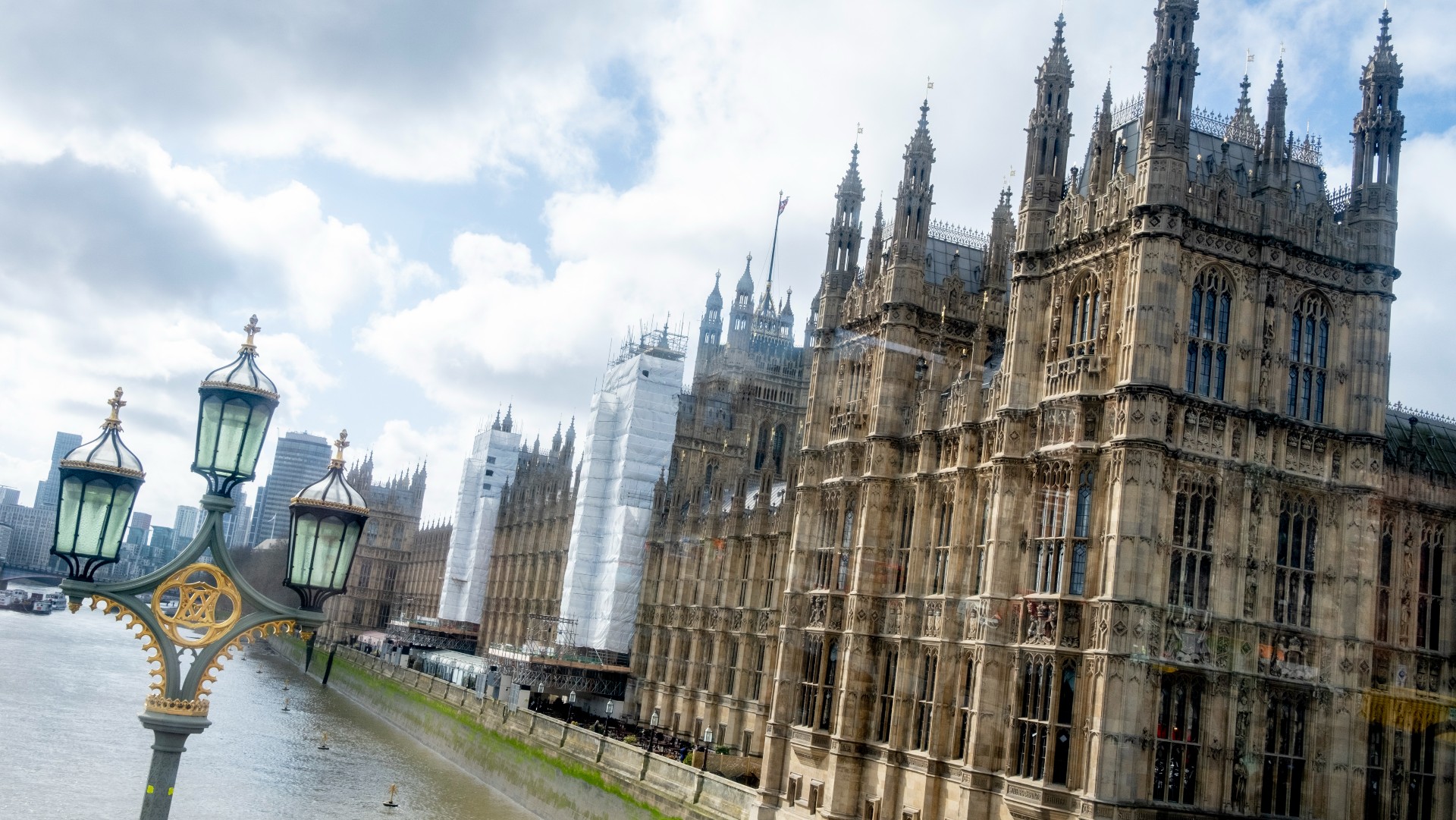What is Erskine May?
Bible of parliamentary procedure is the glue that holds the UK’s unwritten constitution together

A free daily email with the biggest news stories of the day – and the best features from TheWeek.com
You are now subscribed
Your newsletter sign-up was successful
Known as the “bible of parliamentary procedure”, Erskine May has served as the authoritative guide to conventions in Parliament for nearly two centuries.
It is “often referred to but rarely read”, said one of its co-editors, Sir David Natzler. The rulebook plays a vital role in maintaining the conventions that hold the UK’s unwritten constitution together.
What is Erskine May?
Thomas Erskine May was a young assistant in the House of Commons library who produced the first edition of his Treatise on the Law, Privileges, Proceedings and Usage of Parliament in 1844. The publication that bears his name has been regularly revised and updated over the subsequent 178 years across 25 editions, most recently in 2019.
The Week
Escape your echo chamber. Get the facts behind the news, plus analysis from multiple perspectives.

Sign up for The Week's Free Newsletters
From our morning news briefing to a weekly Good News Newsletter, get the best of The Week delivered directly to your inbox.
From our morning news briefing to a weekly Good News Newsletter, get the best of The Week delivered directly to your inbox.
Erskine May: Parliamentary Practice is the authoritative guide to parliamentary procedure and constitutional conventions, but “is not so much a ‘procedural bible’ as a description of how Parliament works”, wrote Mark Hutton, the other 2019 co-editor, for Hansard Society.
It performs a vital function in codifying the UK’s unwritten constitution as “at its root Parliament, although it has many rules, is not a rules-based organisation; it operates according to practice and precedent and its rules, whether expressed in standing orders or resolutions or even occasionally statute, are glosses on or amendments to that practice”, said Hutton, whose title is clerk of the journals.
Who is it for?
While “plainly for practitioners”, such as the Commons Speaker, MPs and officials, “it is not just for them”, wrote Natzler on The Constitution Unit Blog.
Recent controversies over decisions related to Brexit and threats to prorogue Parliament “served to remind all of us that parliamentary procedures are not some sort of secret masonic ritual to be understood only by a priestly caste of clerks and a handful of others, but are as integral to a parliamentary democracy as electoral rules”, he said.
A free daily email with the biggest news stories of the day – and the best features from TheWeek.com
While regularly cited by the Speaker and referred to in Commons debates, Erskine May attracts wider public interest “and is influential outside the United Kingdom, particularly in countries which model their constitutional arrangements on the Westminster system”, said the UK Parliament website.
Previously costing £400 to buy, the latest 2019 edition was published online for the first time, a move which has “significant implications for democratic transparency and for Parliament's interaction with the public”, said Hutton.
What kind of rules does it contain?
Erskine is not a list of specific rules, “but instead a history of how the procedure has evolved throughout history which is used as a reference guide for complex political undertakings”, said the i news site.
Containing more than 2,000 sub-headings, it outlines how parliamentary procedures work, ranging from the passage of bills to the process of elections to how MPs communicate with the monarch. It is divided into sections that cover:
- The constitution and organisation of Parliament including the running of elections and conduct of MPs and peers
- Power and privileges of Parliament including rules governing freedom of speech
- Conduct of business
- Public legislation
- Financial procedure
- Committees
- Private legislation
Each new edition must also contend with changing social conventions and new technology, with the most recent edition including new provisions around the use of “hand-held electronic devices”, the introduction of “business-like attire”, which no longer obliges men to wear ties, rules around MPs bringing children into the chamber, and proxy voting for MPs on parental leave.
When has it been mentioned?
Erskine May sets out rules governing statements misleading Parliament, the rules MPs must follow when interacting with other MPs, language used in the chamber and protocols related to correcting the parliamentary record.
Not only does it dictate how MPs conduct themselves it also sets out what they can, and in some cases cannot, say.
The handbook states that no question can be put in Parliament “which brings the name of the sovereign or influence of the crown directly before parliament, or which casts reflections upon the sovereign”.
This explains why last week MPs were notably silent on the conduct of Prince Charles despite it being revealed that he had personally received millions of pounds in cash from a Qatari royal. The Sunday Times reported that “had MPs been exercised about the financial dealings of the future king revealed last weekend, they would not, according to these conventions, be allowed to ask a question about them in the House of Commons, unless it was part of a broader motion about, say, charity oversight”.
In January, Labour leader Sir Keir Starmer was reprimanded by the Speaker of the House, Sir Lindsay Hoyle, after he sought to contrast the behaviour of the Queen with that of lockdown-breaking parties in Downing Street.
In 2019, the then Speaker, John Bercow, cited Erskine May to rule that Theresa May could not repeatedly bring the same Brexit deal back to the Commons to be voted on unless it was “substantially” different.
The i news site reported that the text in question, which says a defeated motion cannot be brought back in the same form during the course of a parliamentary session, came from April 1604, in which Parliament concluded that “a question being once made, and carried in the affirmative or negative, cannot be questioned again, but must stand as a judgement of the House”.
-
 Minnesota's legal system buckles under Trump's ICE surge
Minnesota's legal system buckles under Trump's ICE surgeIN THE SPOTLIGHT Mass arrests and chaotic administration have pushed Twin Cities courts to the brink as lawyers and judges alike struggle to keep pace with ICE’s activity
-
 Big-time money squabbles: the conflict over California’s proposed billionaire tax
Big-time money squabbles: the conflict over California’s proposed billionaire taxTalking Points Californians worth more than $1.1 billion would pay a one-time 5% tax
-
 ‘The West needs people’
‘The West needs people’Instant Opinion Opinion, comment and editorials of the day
-
 The Mandelson files: Labour Svengali’s parting gift to Starmer
The Mandelson files: Labour Svengali’s parting gift to StarmerThe Explainer Texts and emails about Mandelson’s appointment as US ambassador could fuel biggest political scandal ‘for a generation’
-
 The high street: Britain’s next political battleground?
The high street: Britain’s next political battleground?In the Spotlight Mass closure of shops and influx of organised crime are fuelling voter anger, and offer an opening for Reform UK
-
 Is a Reform-Tory pact becoming more likely?
Is a Reform-Tory pact becoming more likely?Today’s Big Question Nigel Farage’s party is ahead in the polls but still falls well short of a Commons majority, while Conservatives are still losing MPs to Reform
-
 Taking the low road: why the SNP is still standing strong
Taking the low road: why the SNP is still standing strongTalking Point Party is on track for a fifth consecutive victory in May’s Holyrood election, despite controversies and plummeting support
-
 What difference will the 'historic' UK-Germany treaty make?
What difference will the 'historic' UK-Germany treaty make?Today's Big Question Europe's two biggest economies sign first treaty since WWII, underscoring 'triangle alliance' with France amid growing Russian threat and US distance
-
 Are free votes the best way to change British society?
Are free votes the best way to change British society?Today's Big Question On 'conscience issues' like abortion and assisted dying, MPs are being left to make the most consequential social decisions without guidance
-
 Is the G7 still relevant?
Is the G7 still relevant?Talking Point Donald Trump's early departure cast a shadow over this week's meeting of the world's major democracies
-
 Angela Rayner: Labour's next leader?
Angela Rayner: Labour's next leader?Today's Big Question A leaked memo has sparked speculation that the deputy PM is positioning herself as the left-of-centre alternative to Keir Starmer